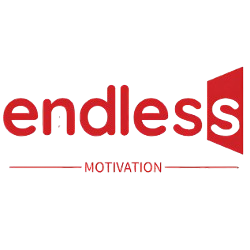You’re about to walk into a big meeting. Your palms are sweaty. Your heart is racing. The critical voice in your head is listing all the ways you might fail. Then, you whisper three words to yourself: “I am ready.”
Suddenly, your posture straightens. Your breath deepens. The anxiety is still there, but it’s joined by a new presence: confidence. This is the power of what I call the “three-word prescription”—a psychological intervention so brief it fits in the palm of your mind, yet potent enough to change your entire state of being.
In an age of information overload, we’re discovering that the most profound wisdom often comes in the smallest packages. While we scroll through endless content, our brains are secretly craving simplicity—clear, memorable commands that can cut through the noise and guide our actions.
This isn’t about positive thinking. This is about cognitive restructuring. These three-word phrases are tools for rewriting the mental scripts that run your life, one brief, powerful prescription at a time.
The Neurology of Nano-Wisdom: Why Three Words Work
Your Brain’s Cognitive Sweet Spot
Neuroscience reveals that our working memory—the part of our mind that holds immediate information—has severe limitations. While we might remember 5-9 items briefly, the most effective number for instant recall and processing is actually three.
Think of the most powerful concepts throughout history:
- “Veni, vidi, vici” (I came, I saw, I conquered)
- “Mind, body, spirit”
- “Reduce, reuse, recycle”
Three words create a complete pattern that our brains can grasp, store, and retrieve with minimal effort. They’re the perfect size for mental portability.
The Mantra Effect on Neural Pathways
Every thought you think strengthens neural pathways. When you consistently repeat “I can’t handle this,” you’re paving a neurological superhighway for anxiety and helplessness.
But when you introduce a three-word prescription like “I’ve got this,” you’re beginning construction on a new neural route. With repetition, this pathway becomes the default—the path of least resistance. You’re not just thinking differently; you’re physically rewiring your brain.
The Emergency Brake for Emotional Spiral
During emotional flooding—when anger, fear, or overwhelm takes over—your prefrontal cortex (the rational, thinking part of your brain) essentially goes offline. In this state, complex reasoning is impossible.
A three-word prescription serves as an emergency brake. “Pause. Breathe. Choose.” is something you can grasp even when you’re emotionally hijacked. It creates just enough space for your rational mind to come back online.
The Mental Pharmacy: Three-Word Prescriptions for Common Conditions
For Anxiety and Overwhelm
(Take as needed when feeling scattered or panicked)
- Breathe deeply now.
- This moment matters.
- Feel your feet.
- I am safe.
- One thing only.
- This will pass.
- Soften your body.
- I am here.
- Release the tension.
- Just this breath.
For Procrastination and Avoidance
(Take before starting difficult tasks)
- Start small now.
- Five minutes only.
- Action beats anxiety.
- Just begin now.
- Progress over perfection.
- Done is better.
- Momentum creates energy.
- Show up anyway.
- One step first.
- Future self thanks.
For Self-Doubt and Criticism
(Take when inner critic is loud)
- I am enough.
- My voice matters.
- I belong here.
- My perspective matters.
- I am capable.
- Courage over comfort.
- I am learning.
- My worth constant.
- I choose me.
- My journey matters.
For Relationships and Connection
(Take before difficult conversations)
- Listen to understand.
- Assume good intent.
- Seek common ground.
- Curiosity not judgment.
- Heart open wide.
- Boundaries with love.
- We not me.
- Patience with process.
- Love them anyway.
- Connection before correction.
For Purpose and Meaning
(Take when feeling lost or directionless)
- Why this matters.
- My contribution counts.
- Small actions matter.
- Leave things better.
- Serve with love.
- This has purpose.
- My work matters.
- Make difference daily.
- Life has meaning.
- My presence matters.
The Implementation Protocol: Making Your Prescriptions Work
Step 1: Diagnosis
First, identify your most common mental “ailments.” What negative thought patterns recur throughout your week?
- “I’m not good enough”
- “This is too hard”
- “I can’t handle this”
- “Nothing ever works”
Be specific. Your mental patterns are as unique as your fingerprint.
Step 2: Prescription Matching
For each negative pattern, select a three-word prescription that serves as its direct antidote.
Negative Thought: “I’m not good enough”
Prescription: “I am enough.”
Negative Thought: “This is too hard”
Prescription: “I can handle.”
Negative Thought: “Nothing ever works”
Prescription: “Progress happens daily.”
Step 3: Dosage and Timing
Consistency matters more than intensity. Rather than trying to remember your prescription all day, attach it to existing habits:
- While brushing teeth: Repeat your prescription 3 times
- At red lights: Recall your phrase
- Before checking email: Take your mental medicine
- While waiting for coffee: One repetition
Step 4: Measure Results
Notice subtle shifts. You’re not looking for dramatic transformation overnight. Look for:
- A slightly calmer response to stress
- One small action taken despite fear
- A moment of choosing compassion over criticism
- Taking one step when you wanted to avoid
These micro-victories prove the prescription is working.
Advanced Applications: Beyond Personal Development
For Leadership
The best leaders understand the power of simple, repeatable phrases that shape culture:
- “Team over individual” builds collaboration
- “Progress not perfection” encourages innovation
- “Listen then lead” creates psychological safety
- “Clear is kind” improves communication
For Parenting
Three-word prescriptions can transform family dynamics:
- “I see you” validates a child’s experience
- “We’ll solve together” teaches problem-solving
- “Feelings are welcome” creates emotional safety
- “Try your best” focuses on effort over outcome
For Creative Work
Every creative professional faces resistance. These prescriptions help:
- “Create without editing” bypasses the inner critic
- “Small steps daily” builds creative momentum
- “Done not perfect” ships the work
- “Trust the process” maintains faith during uncertainty
The Science of Implementation: Making It Stick
The Habit Stacking Method
Research shows that attaching new habits to existing ones dramatically increases success rates. Your three-word prescriptions become most powerful when “stacked” onto routines you already have:
After pouring your morning coffee: “Today will be good.”
Before opening your laptop: “I am focused.”
While washing hands after work: “I did enough.”
Environmental Design
Make your prescriptions unavoidable:
- Write them on sticky notes on your bathroom mirror
- Set them as phone wallpapers
- Place them on your computer monitor
- Write them in the front of your notebook
Your environment should remind you to take your mental medicine.
The Compound Effect
One prescription taken once does little. But one prescription repeated daily creates compound interest in your mental well-being. After 30 days of repeating “I am capable,” you’ll notice:
- Increased willingness to take on challenges
- Quicker recovery from setbacks
- More trust in your own judgment
- Less need for external validation
Your Personal Prescription Pad
It’s time to write your own three-word prescriptions. The most powerful phrases are often the ones you craft yourself. Use this template:
When I feel [anxious/overwhelmed/doubtful/etc.]
I will prescribe myself: [Three-word phrase]
And take this action: [One small, concrete step]
Example:
When I feel overwhelmed by my inbox
I will prescribe myself: One email only
And take this action: Respond to just one message without worrying about the rest
The Journey Forward
The three-word prescription method isn’t about achieving constant happiness or eliminating all negative thoughts. It’s about having tools for the inevitable challenges of being human. It’s about recognizing that you have agency in your mental landscape—that you can write prescriptions for your mind just as a doctor writes for the body.
Some days, you’ll forget to take your mental medicine. That’s okay. The practice is in returning, not in perfection.
Start today. Identify one mental pattern you’d like to shift. Find or create its three-word antidote. Weave it into your day. Notice what shifts.
Your mind is listening. What three words will you plant there today?
What’s your three-word prescription for today? Share your phrase and the mental state it’s addressing in the comments below. Let’s build a collective pharmacy of wisdom together.

